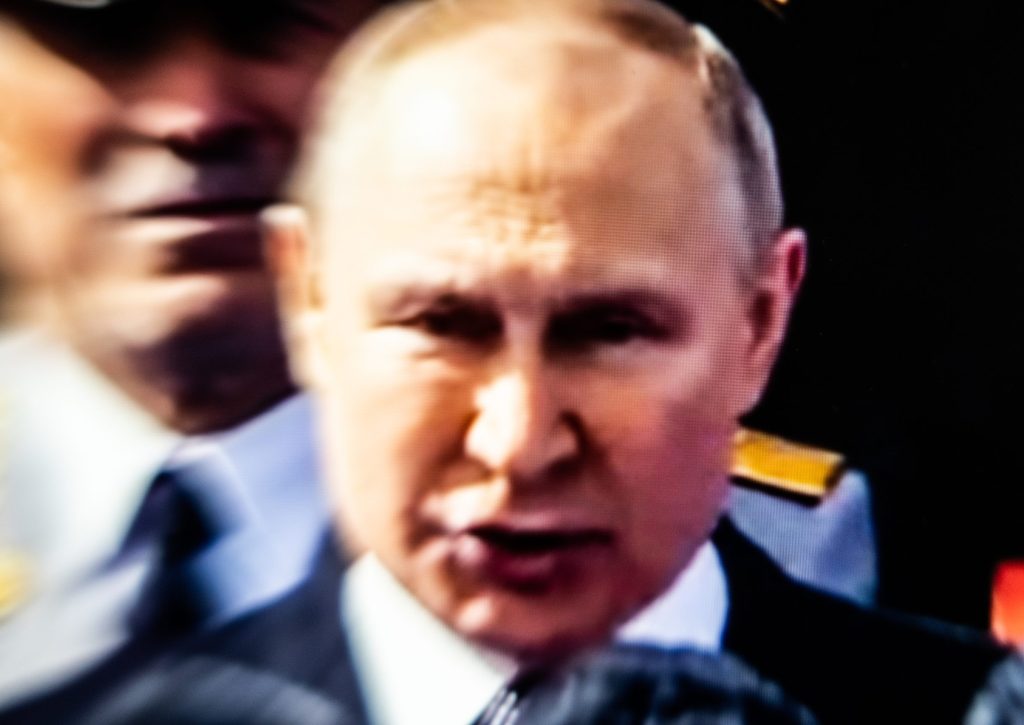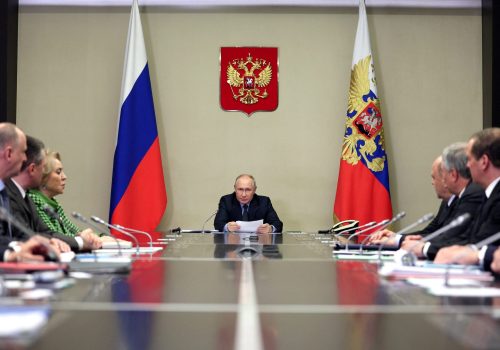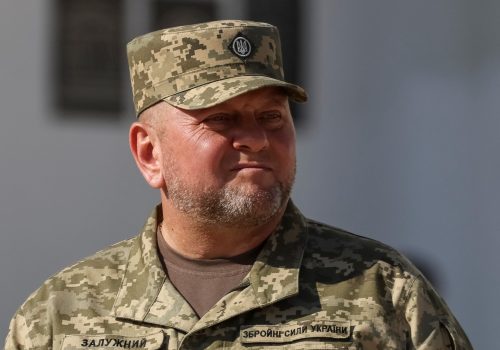Ukrainian Foreign Minister Dmytro Kuleba has dismissed mounting calls for a negotiated settlement with Russia, arguing that Vladimir Putin simply cannot be trusted to keep his word. In a withering social media post published on November 14, Ukraine’s top diplomat claimed Russia routinely disregards its international commitments and cited numerous examples of the Kremlin blatantly breaching agreements reached at the negotiating table. “Putin is a habitual liar who promised international leaders that he would not attack Ukraine days before his invasion in February 2022,” Kuleba noted.
The Ukrainian Foreign Minister’s outspoken rejection of negotiations with the Putin regime comes at a delicate moment for the coalition of countries opposing the Russian invasion of Ukraine. International concerns have been mounting since late summer over the slow progress of Ukraine’s much-hyped counteroffensive, with some commentators pointing to the lack of a decisive military breakthrough as evidence that earlier hopes of defeating Russia on the battlefield are now unrealistic. The mood darkened further in early November, when Ukrainian commander-in-chief Valery Zaluzhny acknowledged in an interview with Britain’s The Economist that the war with Russia had reached a stalemate.
Officials in Kyiv have denied recent reports that Ukraine’s allies are pushing the country to enter into peace talks with Russia. “No leader of the United States or European Union, our partners, nobody puts pressure on us to sit at the negotiation table with Russia and give something away,” Ukrainian President Volodymyr Zelenskyy stated in early November. Zelenskyy himself has repeatedly ruled out any direct talks with Putin, insisting instead that the time for diplomacy will only come once Russian troops have retreated from Ukraine.
Kuleba has now elaborated further, listing a series of broken Russian promises to illustrate why Kyiv has no faith whatsoever in negotiations with Moscow. The Ukrainian Foreign Minister referenced a number of international agreements that were subsequently broken by Russia, beginning with the 1994 Budapest Memorandum and ending with the 2022 Black Sea Grain Initiative. On multiple occasions, he pointed out, Russia had committed to respecting Ukraine’s territorial integrity, but this did not prevent Putin from launching the largest European war of aggression since World War II. “Russia’s tactics have remained consistent in its many wars over the last three decades: Kill, grab, lie, and deny,” he wrote. “Why would anyone genuinely believe that Russia in 2023 is any different from Russia in 1994, 1997, 1999, 2008, 2014, 2015, and 2022?”
Stay updated
As the world watches the Russian invasion of Ukraine unfold, UkraineAlert delivers the best Atlantic Council expert insight and analysis on Ukraine twice a week directly to your inbox.
Ukraine’s leaders are not alone in questioning the sincerity of Russian diplomacy. Indeed, Moscow’s credibility on the international stage has been seriously undermined by almost a decade of aggression against Ukraine that has been accompanied by a relentless flood of often transparent disinformation. When Russian soldiers without insignia first seized control of Ukraine’s Crimean peninsula in February 2014, Putin initially denied any Russian involvement, only to later admit that he had in fact personally given the order to invade. This naked deceit set the tone for Russia’s escalating attack on Ukraine.
Weeks after the military takeover of Crimea, Putin made similarly implausible claims of innocence as the same so-called “little green men” sparked a war in eastern Ukraine’s Donbas region. For the next eight years, Moscow officials would continue to stubbornly insist Russia was not involved in eastern Ukraine, despite mountains of evidence clearly demonstrating the presence of the Russian military and the Kremlin’s direct control over the entire invasion. Russia’s policy of blanket denials made it virtually impossible to establish a viable ceasefire or move forward toward a sustainable settlement of the war in eastern Ukraine. Instead, Moscow made sure the conflict remained unresolved and continued to simmer, setting the stage for the full-scale invasion of February 2022.
The build-up to the current invasion was marked by a further increase in Russian disinformation. For months prior to the outbreak of hostilities, Putin and other leading Russian officials loudly proclaimed that they had no intention of invading Ukraine and accused the West of warmongering. Some senior Kremlin figures even mocked international alarm over the possibility of a major European war. “February 15, 2022 will go down in history as the day of the failure of Western war propaganda. Humiliated and destroyed without firing a shot,” commented Russian foreign ministry spokesperson Maria Zakharova just days before columns of Russian tanks crossed the border into Ukraine.
Eurasia Center events

Given Russia’s long record of broken treaties and barefaced lies, it is little wonder the Ukrainian authorities insist negotiations can only begin after the Russian army has been beaten on the battlefield and forced to withdraw from Ukraine. Nor is there any indication that Putin himself is ready to negotiate. On the contrary, the Russian dictator is openly preparing his country for a long war and appears to be more convinced than ever that time is on his side.
Putin faces no real anti-war movement at home and has largely weathered the economic storms created by imperfectly implemented Western sanctions. While Russian military losses in Ukraine have been exceptionally high, the Kremlin has been careful to recruit cannon fodder from perceived low-risk groups such as convicted criminals, members of Russia’s ethnic minorities, and military-age males conscripted from occupied regions of Ukraine. This has made it possible to insulate the Russian middle classes from the horrors of the conflict unfolding in neighboring Ukraine.
With international resolve to oppose the invasion now beginning to visibly weaken and Western leaders distracted by events in Israel, Putin is also confident of outlasting the democratic world in Ukraine. He has always believed the West ultimately lacks the stomach for a prolonged confrontation with Russia, and is prepared to wait as long as necessary until international support for Ukraine wanes.
In the present circumstances, any attempts to pressure Ukraine into negotiating a compromise peace with Russia would have disastrous consequences for the future of international security. Unless Russia is decisively defeated, there is almost no chance of the Kremlin honoring any commitments made during negotiations. Instead, a messy peace deal would reward Putin for his decision to invade Ukraine and fuel Russia’s sense of impunity, paving the way for the next phase of Moscow’s campaign to extinguish Ukrainian statehood and revive the Russian Empire.
The Ukrainians understand this perfectly well. They have learned from bitter experience that Putin’s Russia cannot be trusted, which is why they are now so adamantly opposed to premature peace talks and recognize that making concessions to the Kremlin will only prolong their country’s agony. Anyone calling for a return to the negotiating table needs to be similarly realistic about the true nature of the Putin regime. A ceasefire may seem like the quickest way to end the bloodshed, but this is wishful thinking. In order to secure a lasting peace, Ukraine must win.
Peter Dickinson is editor of the Atlantic Council’s UkraineAlert service.
Further reading
The views expressed in UkraineAlert are solely those of the authors and do not necessarily reflect the views of the Atlantic Council, its staff, or its supporters.

The Eurasia Center’s mission is to enhance transatlantic cooperation in promoting stability, democratic values and prosperity in Eurasia, from Eastern Europe and Turkey in the West to the Caucasus, Russia and Central Asia in the East.
Follow us on social media
and support our work
Image: Xose Bouzas / Hans Lucas via Reuters Connect




